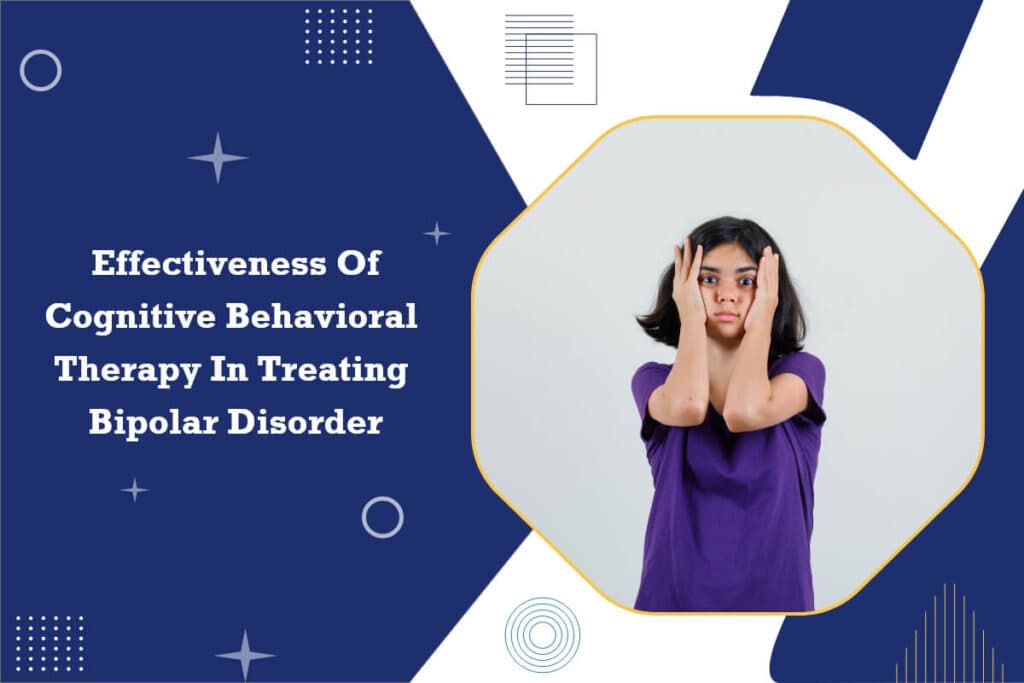The Effectiveness of Cognitive Behavioral Therapy in Treating Bipolar Disorder


People with bipolar disorder would benefit from cognitive behavioural therapy (CBT), it is a type of psychotherapy. Having a one-on-one conversation with a therapist during psychotherapy is possible. It might also entail group sessions with the therapist and other patients dealing with similar problems.

Although there are many methods, they all assist individuals in controlling their emotions, perceptions, and behaviour. Solve problems healthily with Jagruti Rehab Centre now.
What Role Does Cognitive Behavioural Therapy Have in Healthcare?
Usually, a combination of medication and psychotherapy serves as the primary treatment for bipolar disorder. One of the most popular forms of psychotherapy is CBT.
Treating bipolar disorder with cognitive behavioral therapy by:
- Treating depressed symptoms that are a component of depressive periods or occurrences
- Confronting guilt feelings or other unfavourable ideas and concepts regarding manic episodes
- Managing the feelings of losing relationships and friends
- Overall distress can be decreased, as well as manic and depressing episodes. Additionally, it can raise awareness of one's feelings and physical sensations, including the usual signs of a manic episode.
You can visit dementia care homes in delhi and utilise CBT in a range of scenarios, such as:
- Treating mental health problems symptoms
- Avoiding activities which can cause those symptoms
- Developing effective coping skills to manage stress and emotions
- Acting as a temporary solution until a suitable medication regimen is determined
What is the Process of Cognitive Behavioural Therapy?
The main objective of cognitive behavioral therapy for bipolar disorder is to show you diverse strategies for thinking so that, when they occur, you won't have to accept them or allow yourself to accept your negative thoughts.
CBT aims to pinpoint the thoughts that cause your emotional distress or drive you to make poor decisions.
For instance, feeling like people are assessing you can intensify social anxiety or make you more likely to isolate yourself, preventing you from making friends and building supportive social networks.
Once you become aware of these notions, you may challenge them by coming up with different theories and looking for support. Such strategies result in more reasonable and balanced ideas, less emotional pain, and more context-appropriate behaviours.
Since it has been established that emotions and thinking are connected and impact one another, analysing thoughts more realistically can help people feel less unpleasant negative feelings.
The therapy is typically short and specifically aimed at resolving or managing particular issues. You and the therapist both contribute to it.
You and the therapist will interact during a cognitive behavioral therapy techniques for bipolar disorder session to:
- Identify the Issue
- Analyse the Ideas, Behaviors, and Feelings Related to These Issues
- Recognise Negative or Deceptive Emotions, Behaviours, or Thoughts
- Change your Response
Making the Most of CBT
You can take steps to maximise the therapeutic benefits and add to its success.
- Implement a Collaborative Treatment Strategy
- Be Sincere and Truthful
- Follow your Treatment Plan as Directed
- Expect to Wait For Results
- Finish your Homework Between Sessions
- If Therapy is Still Not Working, Talk to Your Therapist
Book a Confidential Consultation with Our Experts
Our team of medical professionals is there to hear and guide you towards the right treatment plan. Get the right professional advice, instant support and confidential consultations with recovery plans especially tailored to your needs.











